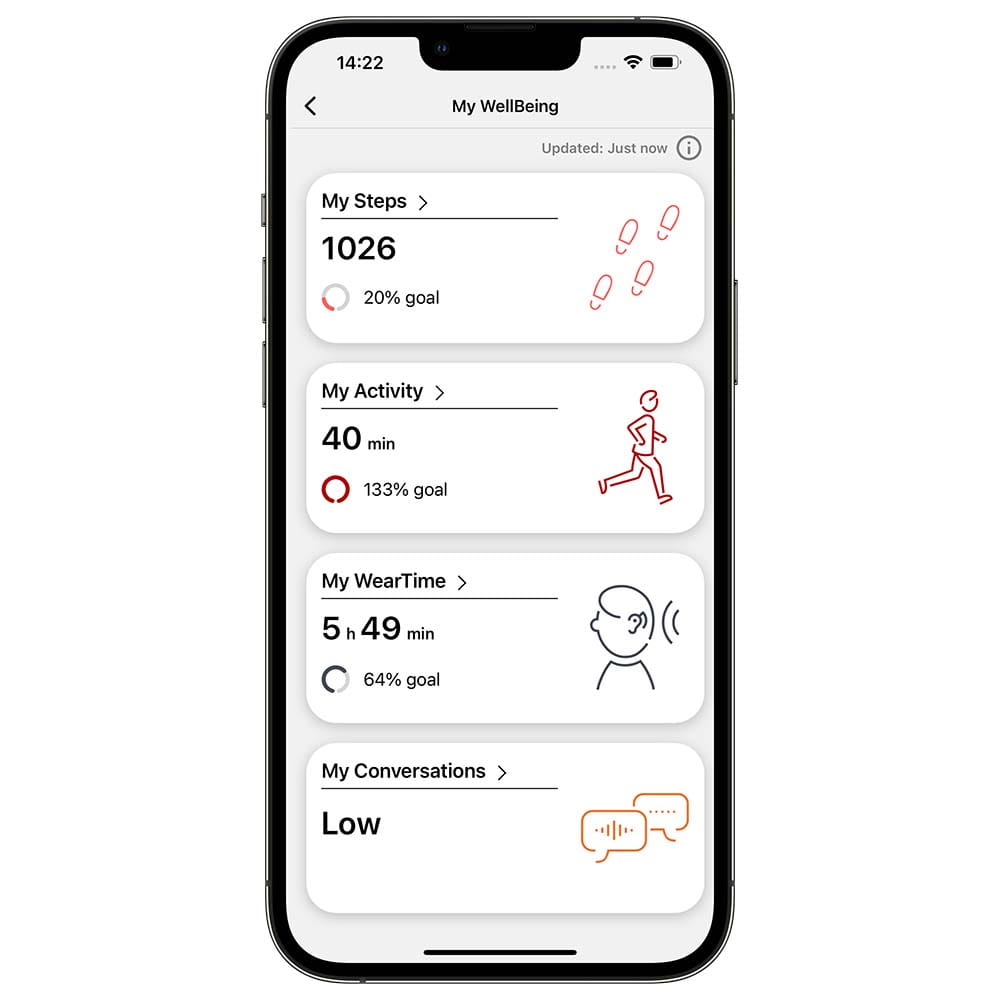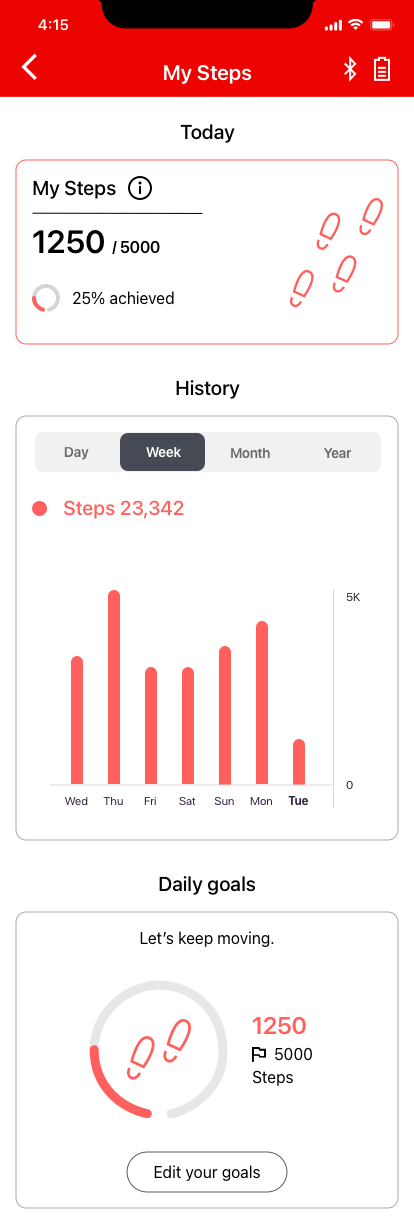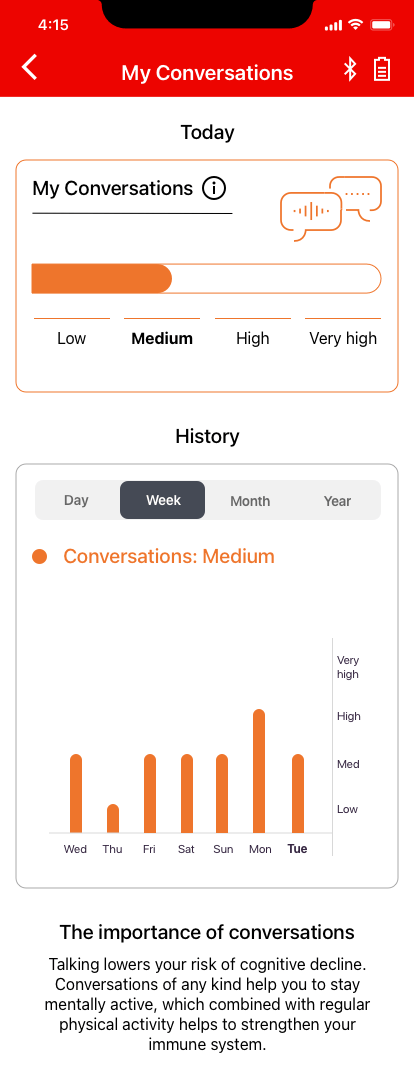
Help keep your customers performing at their best
My Steps
My Activity
My Conversations
My WearTime
Why this is important:
The hearing aids’ in-built motion sensor not only lets hearing aid wearers hear better on the move but also automatically measures how many steps they take each day (My Steps) and how active they are (MyActivity). The app also shows them how much you they using their hearing aids (My WearTime) and the unique Own Voice Processing technology measures how much they are socially interacting with others (My Conversations).

A clear view of how healthy hearing and physical activity
can help your customers Be Brilliant




The proven health benefits of using fitness trackers
Staying active increases their energy levels and confidence and is good for cardiovascular health. It can even slow down age-related hearing loss.2
Using fitness trackers, like those included in this app, is scientifically proven to help maintain and improve physical activity.3
Because privacy is important to many people, all data is only visible in the app and is not stored anywhere else.
Now you can broaden the appeal of the already successful Signia AX hearing aid platform with a package of health features that engage your customers in managing their hearing and physical activity for all-round wellbeing.
FAQs
My WellBeing is a collection of four new features (My Steps, My Activity, My WearTime, My Conversations) that form a valuable tool to encourage hearing aid wearers to use their hearing aids consistently and keep track of health indicators regarding their physical activity.
Hearing aid wearers can view their My WellBeing insights quickly and easily in the Signia app. Because privacy is important, all My WellBeing information is only visible in the Signia app and is not stored anywhere else.
My Steps lets hearing aid wearers see how many steps they take each day.
My Activity shows them how active they are, detecting movements from light housekeeping to strenuous exercise. Both My Steps and My Activity are enabled by the motion sensor in Signia AX hearing aids.
My WearTime lets wearers see how consistently they are using their hearing aids.
My Conversations shows hearing aid wearers how much they are interacting socially with others and is enabled by Signia's unique Own Voice Processing 2.0 technology.
My WellBeing is available for all Signia 7AX, 5AX, and 3AX hearing aids,* and insights can be viewed in the most current version of the Signia app.
*In order to have access to My Conversations insights, wearers must have OVP 2.0 technology available and activated in their fitting.
1 Acree, L. S., Longfors, J., Fjeldstad, A. S., Fjeldstad, C., Schank, B., Nickel, K. J., Montgomery, P. S., & Gardner, A. W. (2006). Physical activity is related to quality of life in older adults. Health and quality of life outcomes, 4, 37. https://doi.org/10.1186/1477-7525-4-37
2 Alessio, H. M., & Marron, K. H. (2014) Fitness and Better Hearing, Part 1. Hearing Review, 21(3): 18-24
3 Larsen, R. T., Wagner, V., Korfitsen, C. B., Keller, C., Juhl, C. B., Langberg, H., & Christensen, J. (2022). Effectiveness of physical activity monitors in adults: systematic review and meta-analysis. BMJ, 376, e068047. https://doi.org/10.1136/bmj-2021-068047
